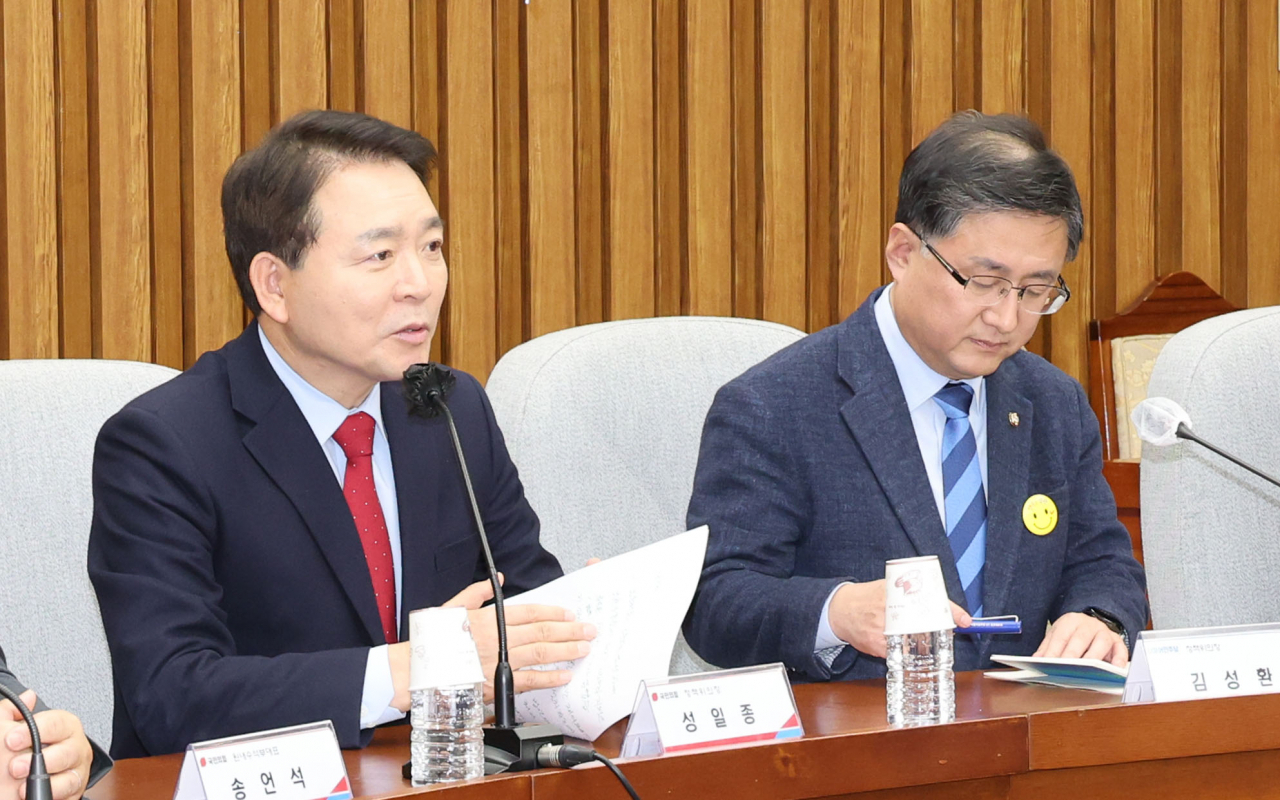 |
Reps. Sung Il-jong (left) and Kim Sung-hwan, heading the policy committees of the ruling and opposition parties, respectively, speak at a meeting Tuesday. (Yonhap) |
South Korea’s ruling and opposition parties on Tuesday agreed to set up a government office for people of Korean lineage living abroad.
Reps. Sung Il-jong and Kim Sung-hwan, leading the policy committees of People Power Party and the Democratic Party of Korea, respectively, announced the bipartisan agreement on this day following a meeting.
“The office will serve more than 7 million Koreans overseas,” Sung told reporters.
In October last year, President Yoon Suk Yeol creating a new office dedicated to supporting Koreans overseas, upgrading the foundation already in place for the same goal.
A bloodline descendant of an ethnic Korean living in a foreign country, regardless of his or her nationality, is considered an overseas Korean, according to the Overseas Koreans Foundation Act.
The Act on the Immigration and Legal Status of Overseas Koreans defines an overseas Korean as a Korean national who has acquired a permanent residency in a foreign country, a person who once held the Korean nationality or the lineal descendants of someone who did.
The Overseas Korean Foundation itself cites both definitions on its website.
Details of what the new government office will do for ethnic Koreans were not available, but the overall support system is likely to expand from what the foundation has been providing, such as through language and scholarship programs, Korean community building, and helping create networks of Korean businessmen overseas, according to observers.
According to the 2021 government statistics, there are more than 7.3 million overseas Koreans scattered across about 180 countries.
At Tuesday’s bipartisan meeting of the policy committees, the parties also agreed on establishment of a ministry for aerospace and aviation.
The parties once again failed to reach an agreement on abolishing the Ministry of Gender Equality and Family, a key Yoon election pledge.







